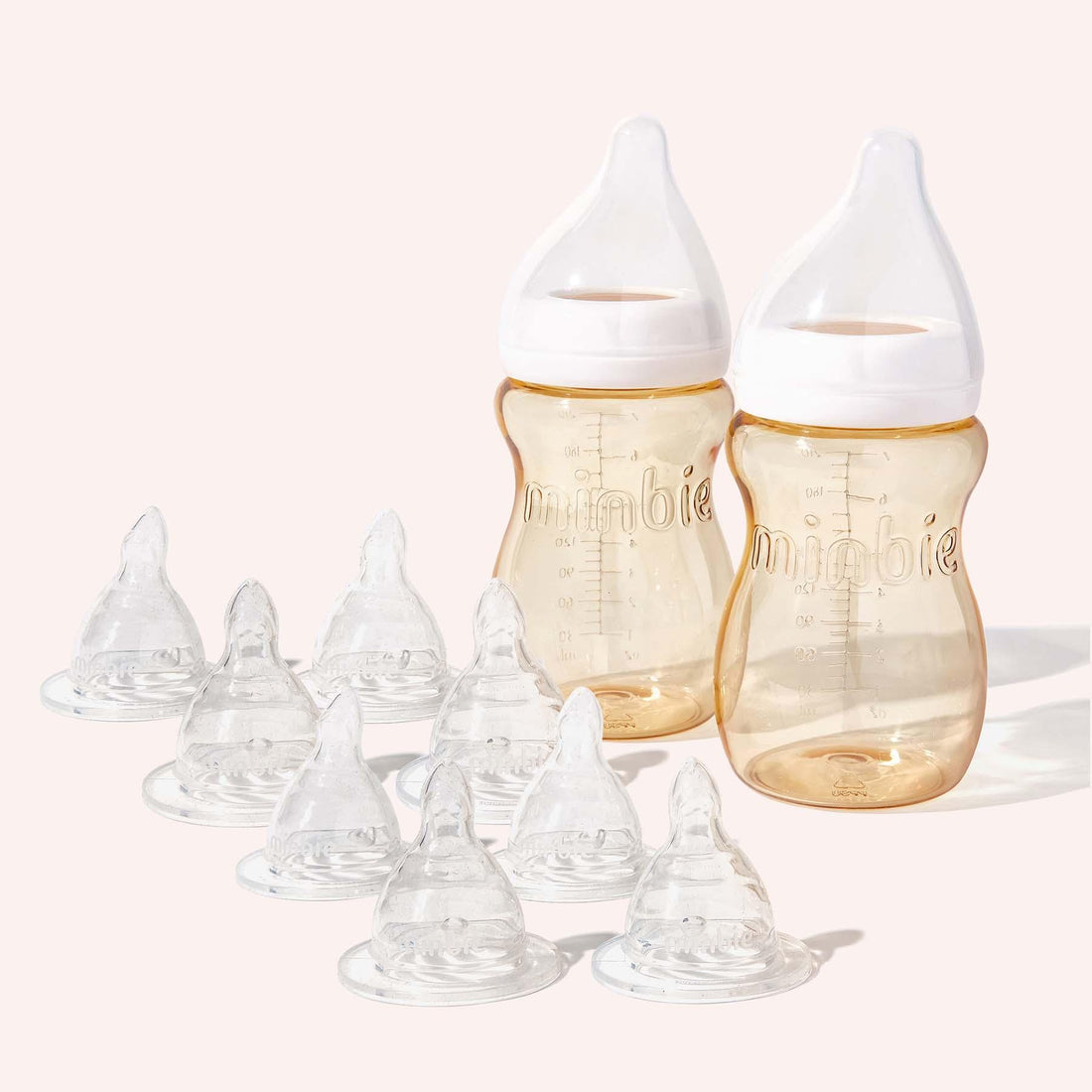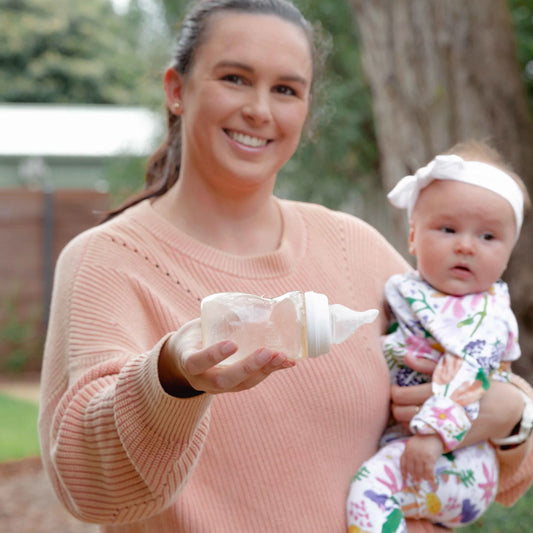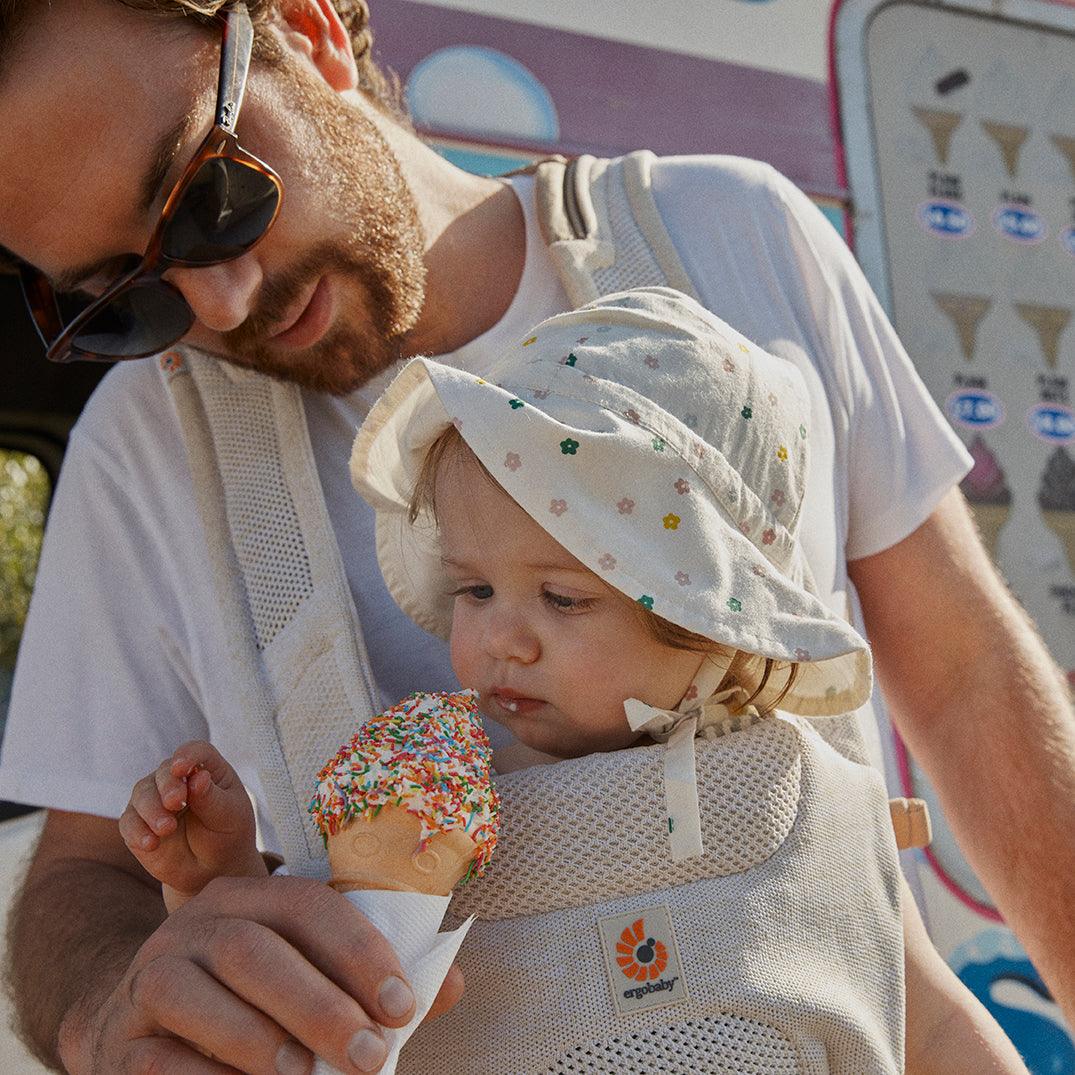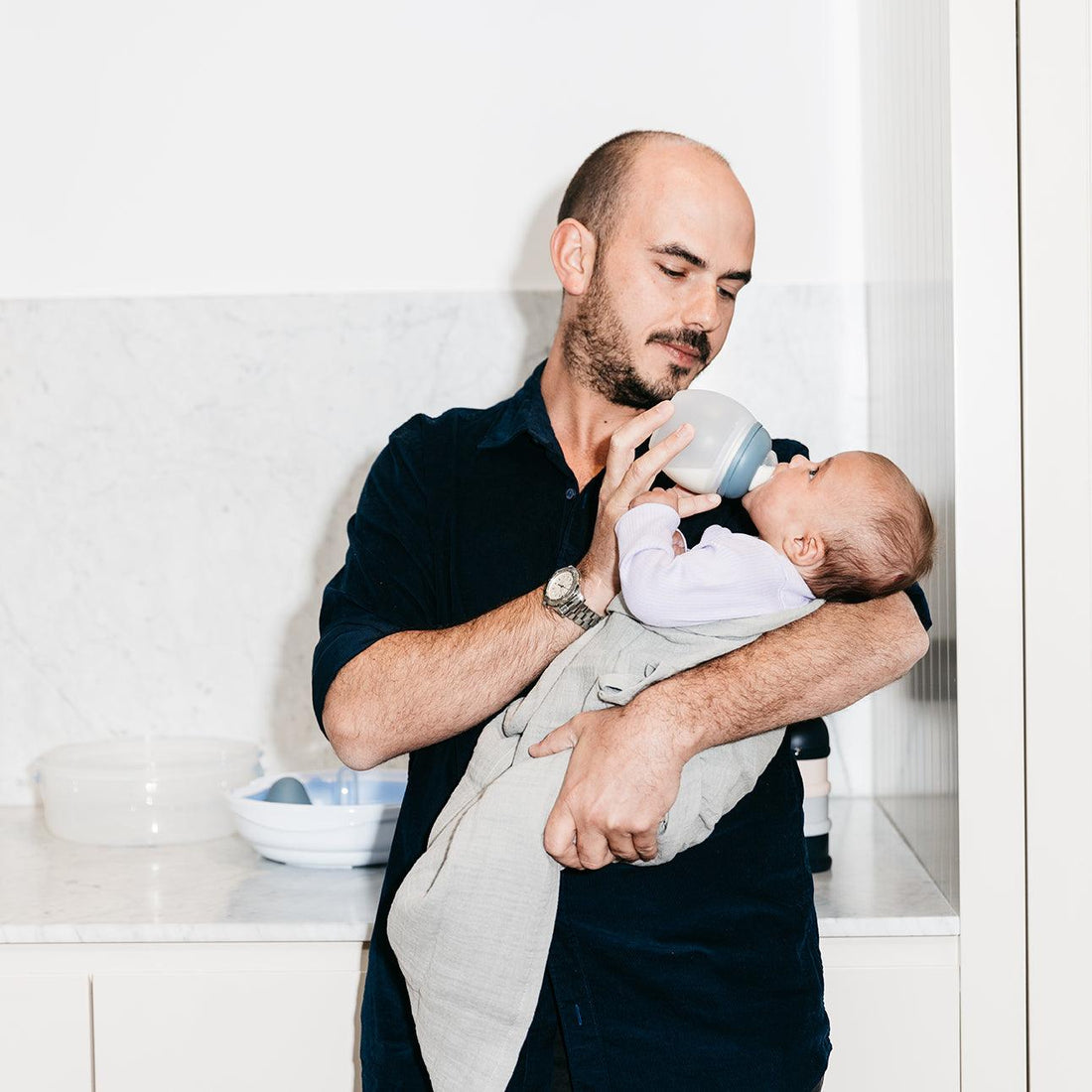Postpartum depression in fathers is more common than you think.
In Australia, the mental health checks for new mothers are, if not thorough, consistent. Each checkup has a component in which the doctor, midwife or maternal healthcare nurse asks “how are you feeling?” in regards to your emotional and mental health. Dads are checked on less. They’ve not done the carrying, pushing/abdominal surgery, but 1 in 10 dads struggle with depression following the birth of their baby.
There’s been a definite shift in the role of a dad in recent years. Parenting is, while not equal, a more shared role, as is paid and housework. More than anything, the details of who does what is unique to each family. Paternity leave is on more workplace policies, the parental role of men in the public eye is more seen, and there are more realistic portrayals of fatherhood in media, but the issue remains with the culture. It’s one thing for a male-dominated company to advertise their excellent paternity leave scheme, it’s another for the employees to feel comfortable taking it.
Having a baby is a big life-shift for everyone, and it doesn’t have to turn into clinical depression to take a toll on your mental health. But it’s not usually easy for men to talk about. “Men have grown up in a cultural narrative where they've got to do it alone, and they've got to do it silently,” says Hunter Johnson, co-founder of Man Cave, a preventative mental health and emotional intelligence charity that empowers boys to become great men, and STUFF a personal care brand erasing toxic masculinity. “Each of us deal with change differently. Even if there’s a history of dealing with change really well, you never know until it's happening.”
Men are half as likely to seek help for mental health and tend to get treatment because their partner has raised concern with their behaviour. Knowledge is power, and often preventative, so here’s what to know about becoming a dad and mental health.
New life, new rules
When you become a parent, personal time suffers, “I realise the best way of supporting my family is to give up some of the me-time and use that time to be present with them, and I’m grateful for that time, but I would also love some extra me-time,” says Henry, dad to Nala, 2 and tattoo artist. And even if your mental health is good, the pain points of new parenthood can take their toll. “Not getting enough sleep is the hardest part. It’s fine at first, missing an hour here and there, but it gradually adds up and affects your health and mood. It's embarrassing to admit, but if I'm honest, poor sleep makes me fractionally worse at everything,” says Christian, dad to August, 2, and an Army Captain.
Everyone’s reaction to parenting is so different, but for all the extra stress and responsibility, you’d be hard pressed to find a dad who doesn’t think having a child is the best thing they’ve ever done. Some find they thrive in a carer role, “I’ve seen it with a lot of the men we’ve worked with, when given the space for them to step into some of their more authentic human qualities that potentially don't get much air time on a construction site, they absolutely love it,” says Hunter. Not mutually exclusive from the thrive, parenting can also come with unforeseen issues, “For me fatherhood has come with the curse of constant self-criticism,” says Christian. “I’m all too aware that my son’s mind is a tiny sponge, so I reflect on everything I do with the added lens of, ‘Is this what I should be transferring to his tiny hard-drive brain?’ or, ‘How would I want August to approach this when he is an adult?’” It’s not uncommon for soon-to-be dads to put pressure on themselves to be the best version of themselves. Soon-to-be-dad interests often include: the future of the political world, sustainability, growing wealth and defining their moral compass.
Macro and micro culture
While the cultural narrative for new mums has shifted to a place of open sharing, seeking help and building the village, “Guys will deal with things themselves,” says Hunter. “[Men] don't want to make a fuss about it, don't necessarily feel comfortable sharing it, so they decide to bottle it up, and we know that can have a really negative impact.” The societal norms are a slow change, but Hunter says it’s also about your relationship culture. “Communication with each other, about the huge life experience you’re about to have, about how you want to show up inside this experience, plots out simple strategies and values that you’ll have for your parenting experience,” says Hunter. “That then becomes the unofficial code of conduct for how you're going to go through the highs and the lows of what you're about to experience, and that way it also creates an agreement around what's expected from each of you, opposed to the other way around where there's an expectation without an agreement.”
This applies as a whole for parenting, but also certain aspects of it: labour, night routine or when one parent returns to work. Encouraging a relationship culture of sharing and communicating effectively and honestly with each other early helps when down the track, time is tight, energy is low, and fatigue is a constant. “Once a week, have a relationship check-in. ‘How are we going? What's working, what's not working? What can we improve? And what can we honor ourselves for, inside of our relationship?’” says Hunter. “Building that rhythm in means you don't wait until it gets to crisis point and everything's fucked.”
Understanding the new self care
One topic that’s good to create early understanding around is what that self care or “me time” will look like for each of you in the future. It’s important to have it, but it looks a lot different to what it used to. “Fitness goes out the window with a baby,” says Lloyd, dad to Estelle, 3, and Morgan, 1, and a company director. “Before kids, I loved exercising: early morning rides and gym sessions, and some evening yin yoga thrown in. Since kids I have packed on a few kilos and started rocking a “dad-bod”. I've just pulled the runners back on but it has been a challenge to find the time and the energy and I am just so slow.” Physical exercise is an important thing to make time for, but when you have young kids, it’s a 30 minute weights session in the backyard, or run around the nearest park rather than a three-hour bike ride. Get creative and you’ll get more out of it. Run with the pram? Remember it won’t be too long and they’ll be able to come run with you. And probably be faster than you.
It’s also important to stay intouch with friends, but again, it might not be a weekly pub crawl that has you out of the house for 12 hours. Don’t fret, there will be time for long, leisurely social time, but the occasions will be few and far between until the kids are older. In the meantime, incorporate your social time with family time: take baby and have a morning coffee date with a mate rather than a 5pm beer (witching hours will be occupied for a while). Catch up together at someone’s house for a barbecue where the kids can run around, or make a regular, calendar-dated, catch up: brew club, gaming night, jujitsu, group surf. Work out your needs with your partner and make them happen for both of you.
A huge mental load is lifted if within those male friendships, there is a culture of open communication. “There's a real fear of guys around being honest and intimate with their mates, because they've grown up knowing that if they've done that before, they've been bullied for it. And so all they want to do is fit in and feel like they've got psychological safety,” says Hunter. He’s employed tactics to become more open and honest with his own friends, “A bunch of mates that I have, we literally get together once a year. That's our time, and usually it's a golf weekend. On the Friday night when we get there, we put a case of beer in the middle and sit down, and we go around and everyone gives an overview of how life is really going for them. We’ve made it really normal in the sense that it's a bonding activity, and then it means, for the rest of the weekend we can just have fun and be silly and let off some steam. But that first night, we've been intentional in connecting and finding out how the guys are really going.”
Identifying the signs, and talking about it
The signs of depression: complaining of extreme fatigue, a loss of interest in usual activities, a change in personality or energy, they are different for everyone, but as their partner, Hunter assures you’ll be the best person to notice if something isn’t right. When you do see the signs, “Approach the conversation with authenticity,” says Hunter. “If you say, ‘hey, I have to have a conversation with you that I'm really nervous about, but I'm nervous about it because I love you,’ that's a pretty nice opening to any conversation. My other recommendation is to use your calendars. A lot of parents are from a professional world and well versed with a calendar date. Schedule a time to do a bit of a check-in or an audit on your relationship and feelings.”
There are lots of really helpful resources on fatherhood and depression on from Beyond Blue, PANDA and the dedicated How Is Dad Going?. “If things do get to that point where extra help is required, that's so fine,” says Hunter. “We're human beings, and we have highs and lows and coaches and mentors and safe spaces, and it can be helpful to look at mental health support in a more community framework: support to get through a really big life experience. Your GP is a great place to start, or Hunter suggests finding a local men’s group. “It’s a community of men who could be new fathers, or just guys who enjoy the space where they can be real and open up. Often that is incredibly powerful and beneficial for men who haven't grown up with intimate male relationships like that to be part of.”








